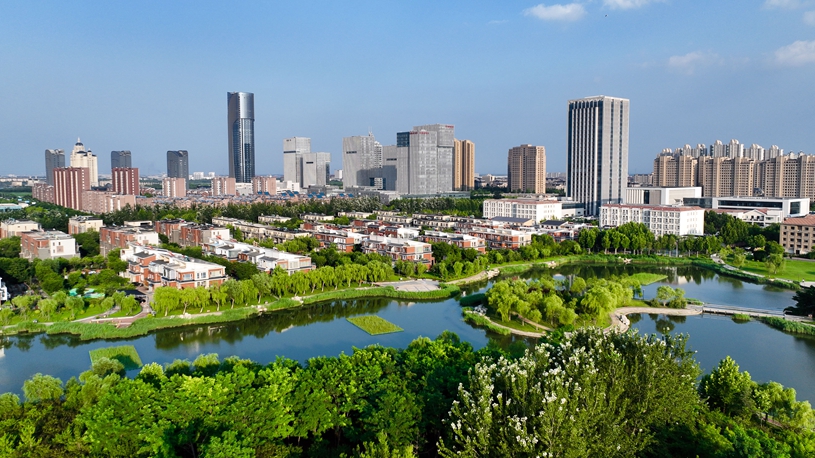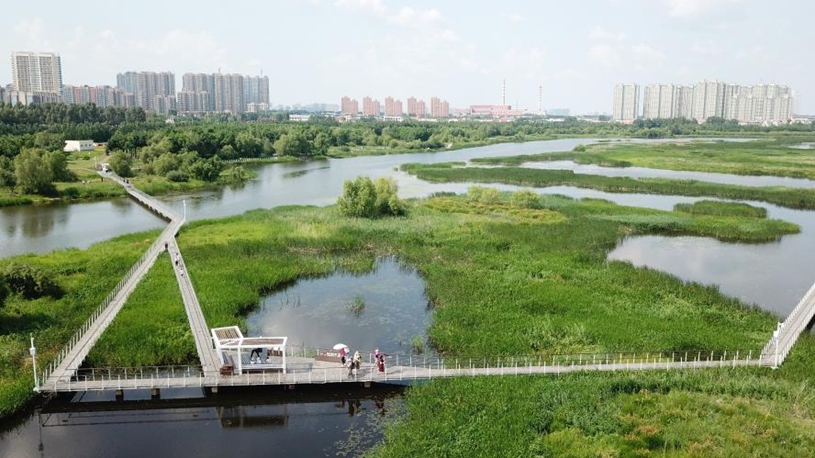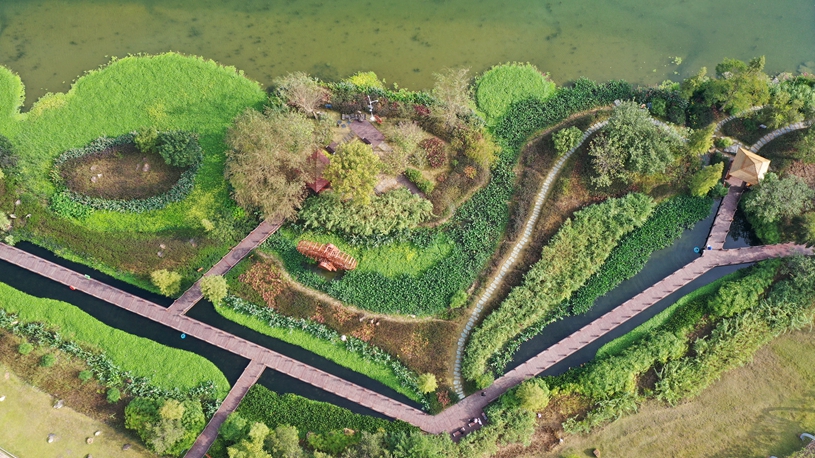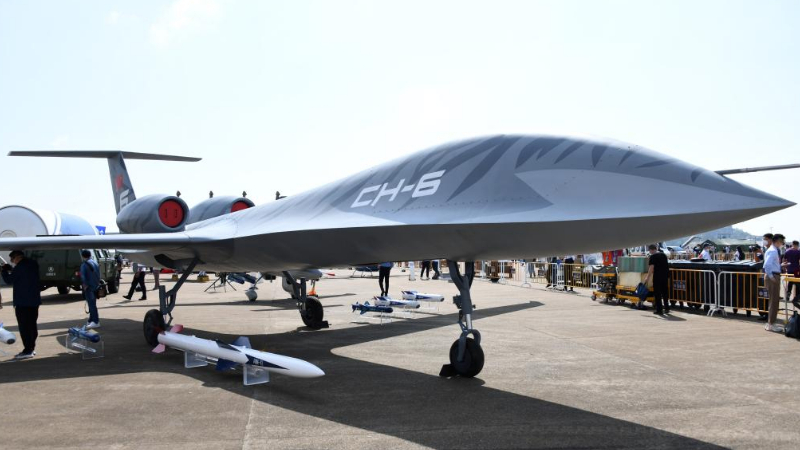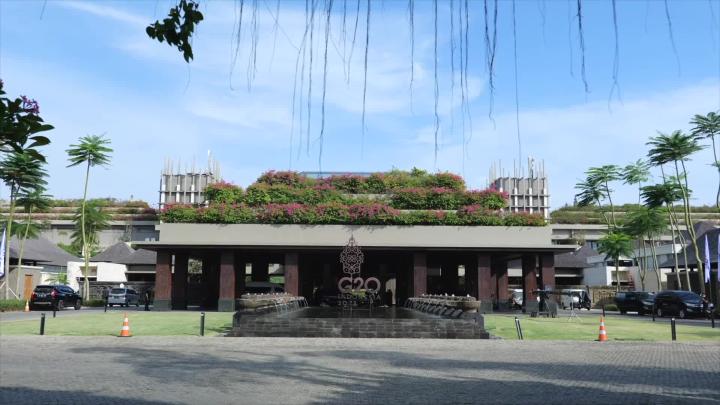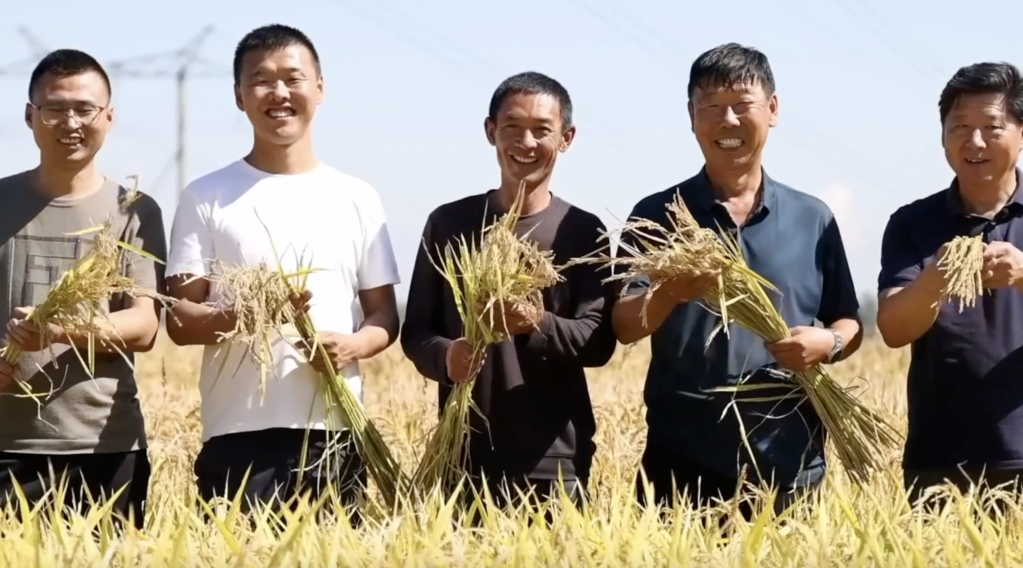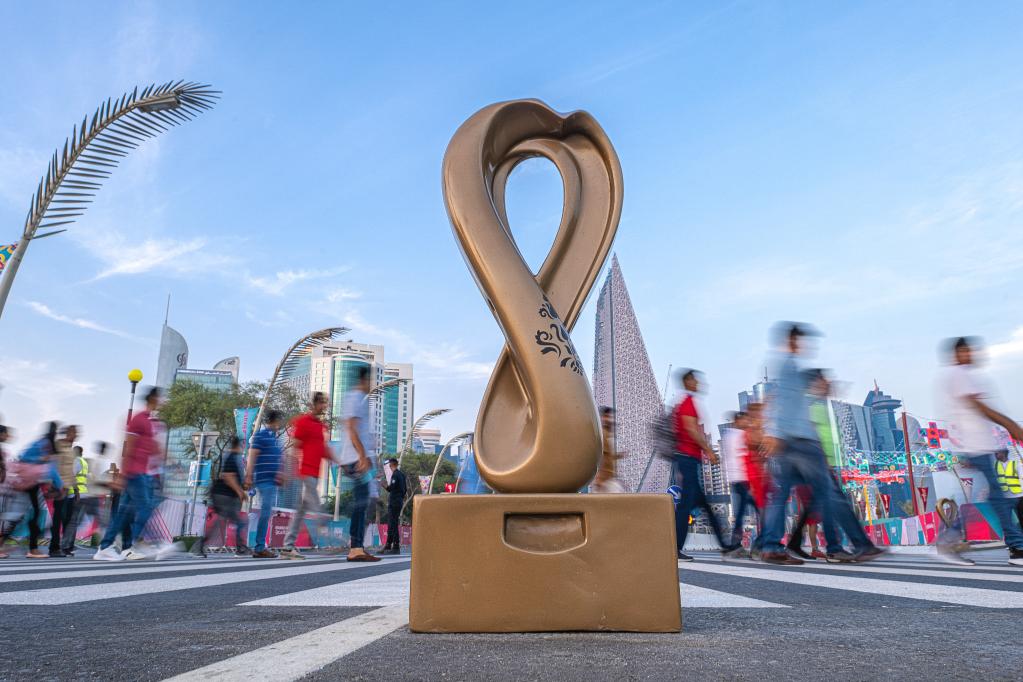
A statue of FIFA World Cup Qatar 2022 emblem is seen near Al Corniche waterfront in Doha, Qatar, Nov. 18, 2022, ahead of the FIFA World Cup Qatar 2022. (Xinhua/Xiao Yijiu)
"What has played out over the past several years, and intensified in the final few months before the World Cup's Sunday premiere, reveals the depths of Western prejudice, performative moral outrage and, perhaps most significantly, gross double standards," said Ayman Mohyeldin, an MSNBC anchor who has long reported on the Middle East and the Arab world, in an opinion piece.
CAIRO, Nov. 22 (Xinhua) -- The 2022 FIFA World Cup enters the third day, with four matches scheduled for Tuesday. As football enthusiasts worldwide are fixing their eyes on the event, some Western media outlets, however, are distracting them from the joy of the tournament.
Though it is played in a reduced timeframe of 29 days, the biggest sporting event ever held in the Middle East is estimated to be the costliest World Cup, as Qatar has reportedly spent more than 200 billion U.S. dollars on related infrastructure projects.
"We have worked hard, along with many people, to make it one of the most successful tournaments," Emir Sheikh Tamim bin Hamad Al Thani said Sunday during the opening ceremony. "How beautiful it is for people to put aside what divides them in order to celebrate their diversity and what brings them together at the same time."
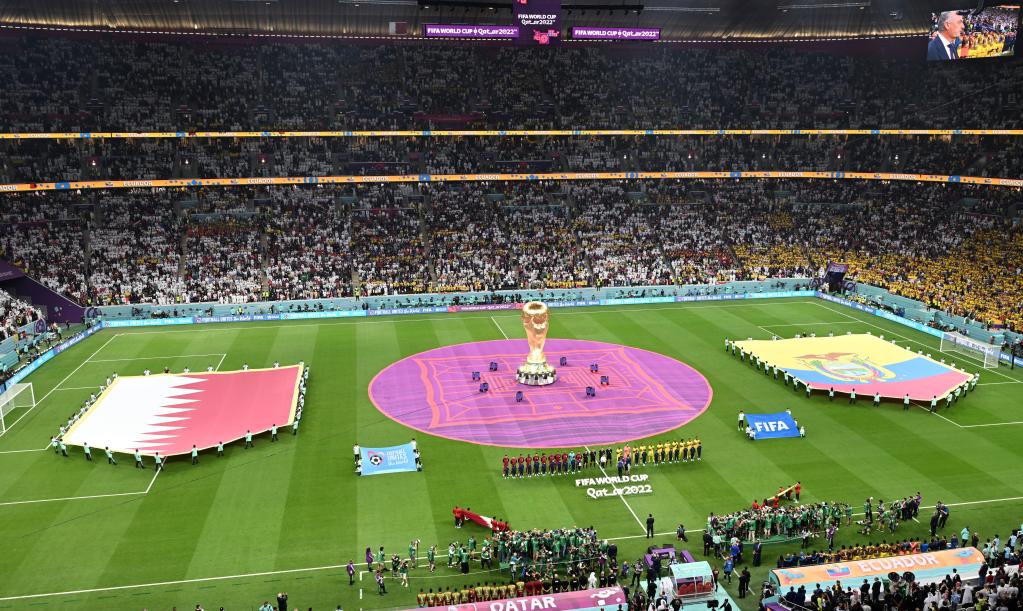
Players of both sides line up prior to the Group A match between Qatar and Ecuador at the 2022 FIFA World Cup at Al Bayt Stadium in Al Khor, Qatar, Nov. 20, 2022. (Xinhua/Xiao Yijiu)
Regardless of Qatar's tremendous efforts to host the event, some Western media outlets have heaped criticism on the country, accusing it of violating the rights of migrant workers who built the World Cup stadiums, criminalizing homosexuality, and disregarding women's rights.
Dismissing these allegations, the emir said on Oct. 25 that his country had been "subject to an unprecedented campaign that no host country has ever faced."
Western media's partial and biased coverage is by no means new. As early as 12 years ago when Qatar won the bid to host this year's World Cup, they cast suspicion about the FIFA's decision and the host nation.
Initially, Qatar dealt with the matter in good faith and even considered some criticism useful. "But it soon became clear to us that the campaign continues, expands and includes fabrication and double standards, until it reached an amount of ferocity that brought up many questions, unfortunately, about the real reasons," the emir told a meeting of Qatar's legislative Shura Council.
Speaking at an opening press conference of the World Cup on Saturday, FIFA President Gianni Infantino blasted the "hypocrisy" of Western critics, saying he had "difficulties understanding the criticism."
"I don't want to give you any lessons of life, but what is going on here is profoundly, profoundly unjust," he lamented.
"This one-sided moral lesson is just hypocrisy," he said. "For what we Europeans have been doing around the world in the last 3,000 years, we should be apologizing for the next 3,000 years before starting to give moral lessons to people."
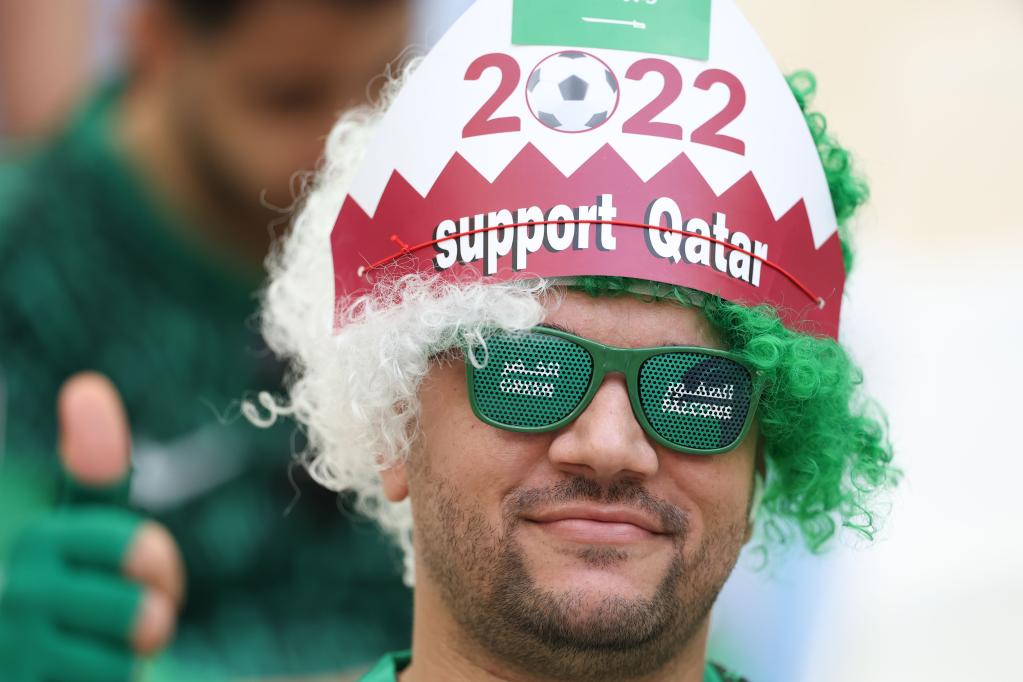
A fan reacts inside the stadium before the Group C match between Argentina and Saudi Arabia at the 2022 FIFA World Cup at Lusail Stadium in Lusail, Qatar, Nov. 22, 2022. (Xinhua/Han Yan)
The prejudice of the Western journalism, as is exposed in their reports on the World Cup, has triggered a backlash from the Arab community.
"What has played out over the past several years, and intensified in the final few months before the World Cup's Sunday premiere, reveals the depths of Western prejudice, performative moral outrage and, perhaps most significantly, gross double standards," said Ayman Mohyeldin, an MSNBC anchor who has long reported on the Middle East and the Arab world, in an opinion piece.
An Egypt-born journalist based in New York, Mohyeldin observed "a barrage of negative and quite frankly racist commentary" about Qatar.
"Is this debate truly about migrant workers' rights and human rights, or is it that European countries and Western pundits, who view themselves as the traditional gatekeepers of global soccer, can't stomach the idea that an Arab Middle Eastern country will host such a venerable event?" Mohyeldin rhetorically asked.
In the past years, Qatar has taken measures to improve working conditions and workers' welfare, and its labour landscape has changed significantly since 2010, said the Qatari side.
"There was an acknowledgment at the time that gaps existed. We have demonstrated through our various ecosystems that meaningful steps can be taken to fill those gaps," said Mahmoud Qutub, labor rights advisor to the Chairman at FIFA World Cup 2022, during a public hearing on workers' rights in Qatar in October.

